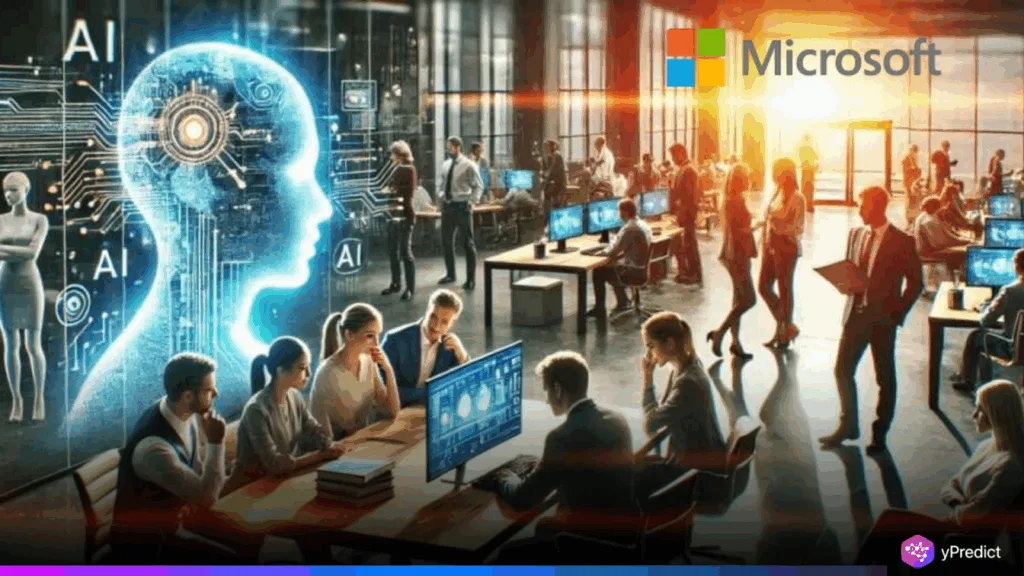
Microsoft is no longer just promoting AI; it’s enforcing it. Internal emails show managers are being told to include AI usage in employee evaluations. The shift is stark: from optional experimentation to mandatory integration. Julia Liuson, head of Microsoft’s Developer Division, stated in a memo, “Using AI is no longer optional; it’s core to every role.” The policy appears aimed at boosting lagging adoption of tools like GitHub Copilot, even among those building them. As AI tools become foundational to workflow, Microsoft is making AI competency not just a skill but a performance standard. The message is clear: adapt, or risk irrelevance.
Inside the Shift: Performance Reviews, Competition, and Trust
Microsoft’s AI enforcement comes amid fierce competition and rising internal pressure. Reports suggest that even developers working on Copilot were not using it effectively, prompting leadership to tie AI adoption directly to performance reviews. Some teams may soon face formal evaluation metrics on how well they integrate AI into their daily work. This move also reflects broader industry trends. Competitors like Cursor and Replit are gaining traction with their own AI tools, and Microsoft doesn’t want to fall behind. Even as it encourages the usage of Copilot, Microsoft permits external tools if they meet security protocols. The goal? Widespread, secure AI adoption.
But there’s a growing unease about over-reliance. AI “hallucinations,” when tools confidently produce incorrect results, are a known flaw. Even OpenAI CEO Sam Altman cautioned users not to trust AI blindly, despite widespread dependence. Still, Microsoft’s policy suggests employee skepticism won’t be tolerated for long. The company’s new AI-first mindset raises ethical and practical questions: Should tools that sometimes lie become performance criteria? For now, Microsoft is betting the benefits outweigh the risks. In its ecosystem, resistance to AI may soon mean professional stagnation.
From Optional to Inescapable: AI as a Career Benchmark
What began as curiosity about generative AI is becoming a corporate imperative. Microsoft’s internal policy illustrates a shift: AI isn’t just a tool; it’s now a benchmark. Adoption is no longer about exploring innovation; it’s a sign of competence. In a fast-moving tech landscape, staying relevant means actively using AI. Leaders like Peter Thiel express ambivalence about AI’s role. He’s skeptical that it can truly revive stagnant innovation, but still considers it the only disruptive force on the horizon. “Without AI,” Thiel says, “there’s just nothing going on.” Microsoft, it seems, agrees and is moving accordingly.
But as AI becomes a performance metric, there’s a new kind of compliance culture forming. Employees may feel compelled to use tools regardless of efficacy or trust, simply to meet expectations. AI use becomes more about optics than outcomes. For companies, this could mean faster AI adoption, but possibly at the expense of critical thinking. For employees, it means a workplace where success depends not just on skills but on visible allegiance to a specific kind of technology. Microsoft isn’t just setting a precedent; it’s setting a tone: The future of work will be automated, augmented, and audited. And opting out won’t be on the table.
Embrace AI, or Be Replaced
Microsoft’s new policy isn’t just about productivity. It’s about survival. As artificial intelligence redefines workflows, those who fail to adapt may find themselves left behind, not by machines, but by management. AI has become a performance benchmark, not just a convenience. Whether seen as a tool of transformation or a symbol of conformity, the corporate consensus is clear: AI is here, and you’re expected to use it. As Sam Altman warns users to tread carefully, and Peter Thiel questions its limits, one truth remains: If AI doesn’t take your job, not learning to work with it just might. Adapt, or risk being obsolete.





